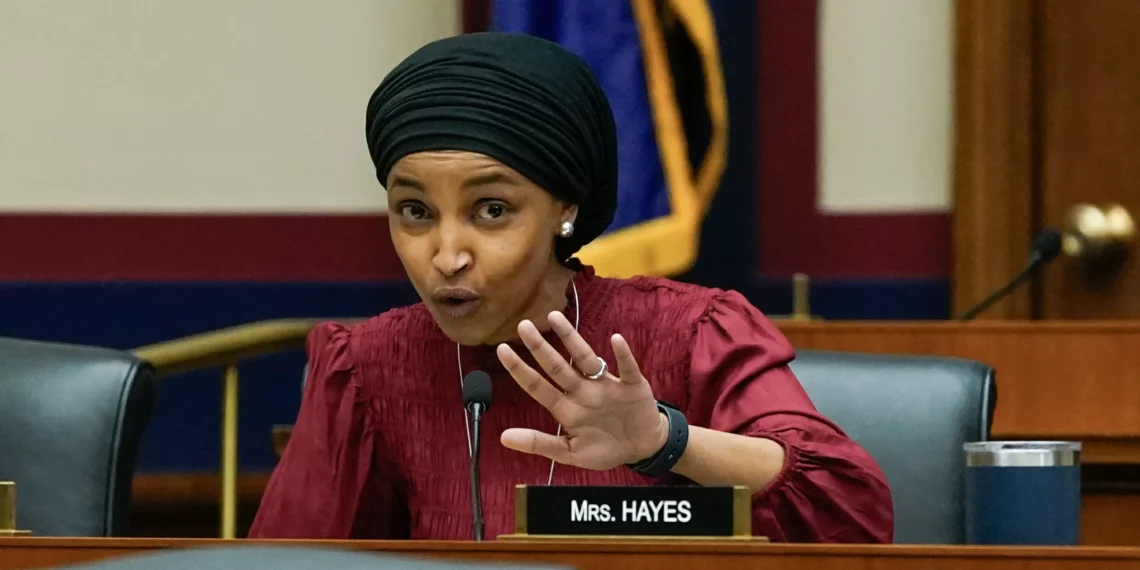The recent suspension of three students from Columbia University has sparked controversy and outrage among students and faculty alike. The university, known for its diverse and inclusive community, has come under fire for its decision to suspend these students for participating in an on-campus encampment to protest the Israeli government. Among the suspended students is Isra Hirsi, the daughter of Congresswoman Ilhan Omar, who was suspended just one day after her mother grilled school administrators on their handling of the situation.
The encampment, which was set up on the university’s main quad, was a peaceful protest organized by students to raise awareness about the ongoing human rights violations committed by the Israeli government against Palestinians. The students were demanding that the university divest from companies that profit from the occupation of Palestinian territories and to end all ties with Israeli institutions that are complicit in these violations.
The decision to suspend these students has been met with widespread criticism from students, faculty, and human rights organizations. Many have accused the university of silencing the voices of those who are standing up for justice and human rights. The suspension of Isra Hirsi, in particular, has raised concerns about the university’s commitment to free speech and academic freedom.
Isra Hirsi, a freshman at Columbia University, has been a vocal advocate for social justice and has been actively involved in various causes, including climate change and racial justice. Her mother, Congresswoman Ilhan Omar, has been a strong advocate for Palestinian rights and has been a vocal critic of the Israeli government’s policies. It is no surprise that Isra has followed in her mother’s footsteps and has taken a stand against injustice.
The timing of Isra’s suspension, just one day after her mother’s heated exchange with school administrators, raises questions about the university’s motives. Was this a deliberate attempt to silence Congresswoman Omar and her family? Or was it a message to other students that their activism will not be tolerated? Whatever the reason may be, the university’s decision has only fueled the fire and has brought more attention to the cause.
The university has defended its decision, stating that the students were suspended for violating the university’s code of conduct by setting up an encampment without proper permission. However, many have pointed out that the university has allowed other protests and demonstrations on campus without any repercussions. This raises concerns about the selective enforcement of the code of conduct and the university’s bias towards certain causes.
The suspension of these students is not just an attack on their right to free speech, but it is also a violation of their right to education. Isra and her fellow students have been deprived of their education for standing up for what they believe in. This sends a dangerous message to students that their activism and advocacy can have consequences on their academic career.
The university’s decision has also sparked a larger conversation about the role of universities in promoting social justice and human rights. As institutions of higher learning, universities have a responsibility to foster critical thinking and encourage students to engage in important issues that affect our society. By suspending these students, the university has failed to uphold this responsibility and has instead chosen to silence their voices.
It is also worth noting that this is not the first time that Columbia University has faced criticism for its handling of issues related to Palestine. In 2018, the university faced backlash for inviting Israeli Prime Minister Benjamin Netanyahu to speak on campus. Many students and faculty members protested the event, arguing that it goes against the university’s values of diversity and inclusivity.
In light of these recent events, it is clear that there is a need for the university to re-evaluate its policies and practices. The suspension of these students has only brought more attention to the cause and has sparked a larger conversation about the university’s role in promoting social justice and human rights. It is time for the university to listen to the voices of its students and take meaningful action to address their concerns.
In conclusion, the suspension of three students, including Isra Hirsi, from Columbia University for participating in a peaceful protest is a clear violation of their rights and a failure on the part of the university to uphold its values of diversity and inclusivity. The university must take responsibility for its actions and work towards creating a more inclusive and just campus for all students. As Isra Hirsi herself said, “We will not be silenced, we will continue to speak out against injustice and stand in solidarity with those who are oppressed.” It is time for the university to listen and take action.







